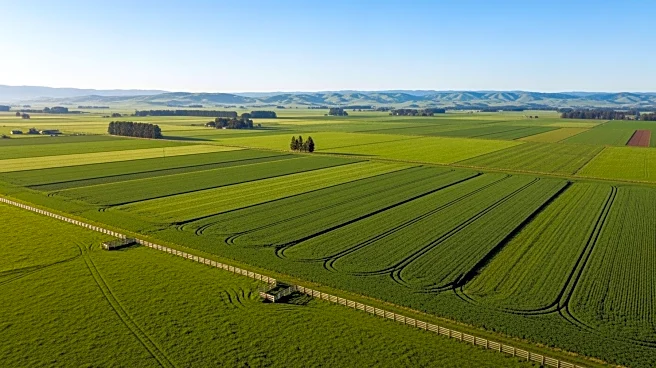What's Happening?
The United States Golf Association (USGA) is celebrating the 50th anniversary of its membership program, highlighting its commitment to sustainability and philanthropy. The USGA, a 501(c)(3) nonprofit, reinvests its revenue into golf, funding turf research
and supporting underprivileged players through its development programs. The organization aims to minimize golf's environmental impact through initiatives like the Mike Davis Program for Advancing Golf Course Management, which allocates $2 million annually for research projects. Additionally, the USGA is working to raise $50 million to endow these grants for the next 25 years. The USGA also supports young and underserved golfers through the U.S. National Player Development Program, which has funded over 100 golfers aged 13-17.
Why It's Important?
The USGA's efforts to promote sustainability and support underprivileged golfers reflect broader trends in sports organizations prioritizing environmental responsibility and inclusivity. By funding research to reduce golf's ecological footprint, the USGA addresses concerns about resource use in the sport. The development programs provide opportunities for young golfers from diverse backgrounds, potentially diversifying the sport and fostering new talent. These initiatives could lead to long-term changes in golf's accessibility and environmental practices, benefiting both the sport and its participants.
What's Next?
The USGA plans to continue expanding its philanthropic efforts, seeking more support from the golf community to sustain and grow its programs. The organization remains reliant on the U.S. Open for funding, but aims to diversify its revenue streams to ensure the continuation of initiatives like the U.S. Adaptive Open and the Davis Grants. As the USGA works towards its fundraising goals, it will likely engage more with individual golfers and donors to secure the necessary financial backing.
Beyond the Headlines
The USGA's focus on sustainability and inclusivity may influence other sports organizations to adopt similar practices, potentially leading to a broader shift in how sports manage environmental and social responsibilities. The organization's commitment to supporting golfers with disabilities through events like the U.S. Adaptive Open highlights the importance of accessibility in sports, setting a precedent for other organizations to follow.














